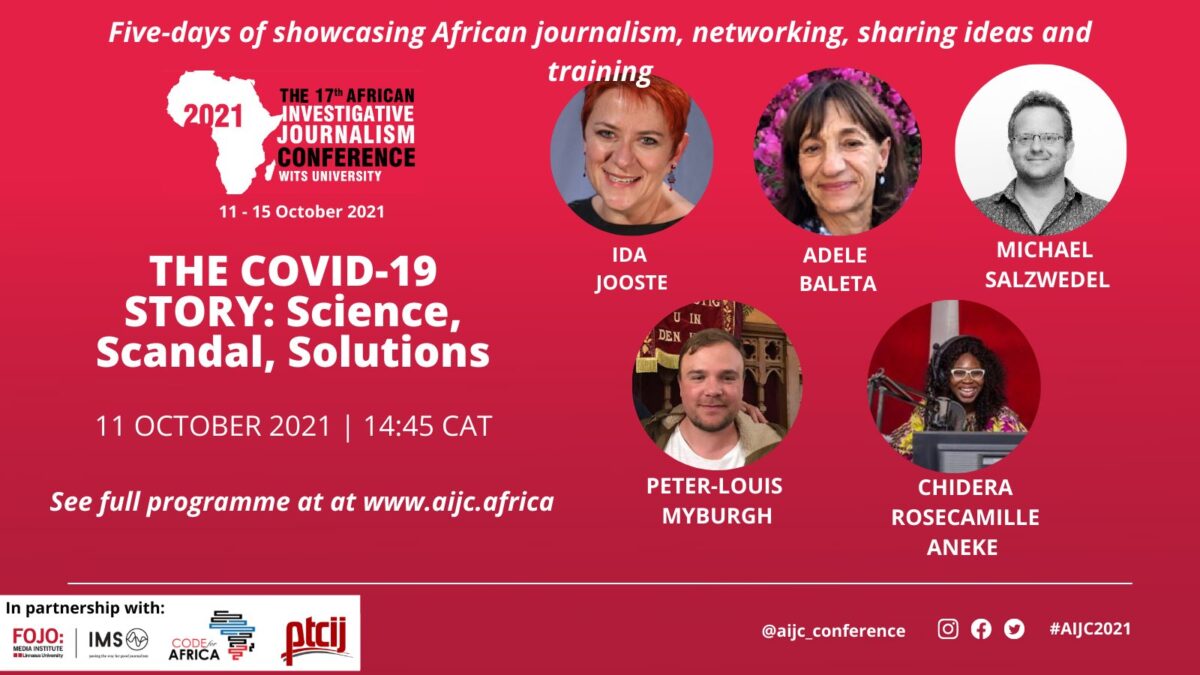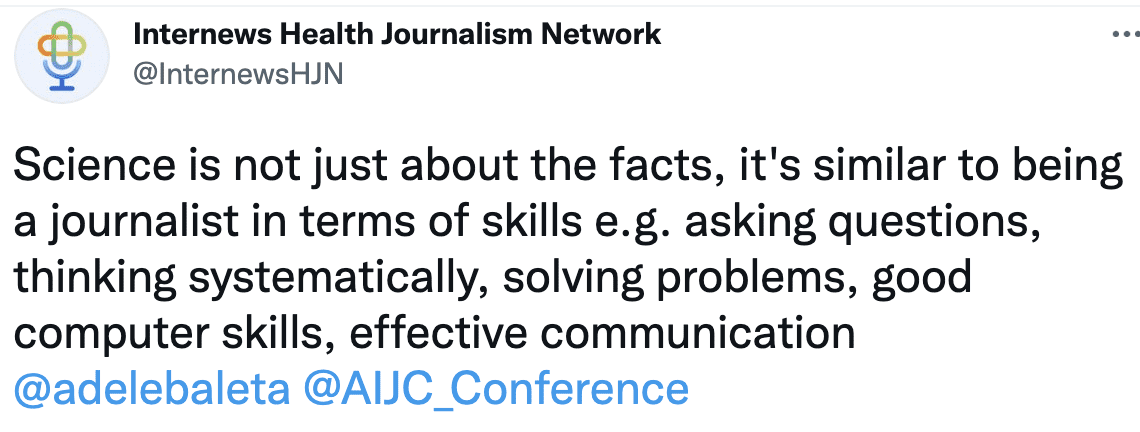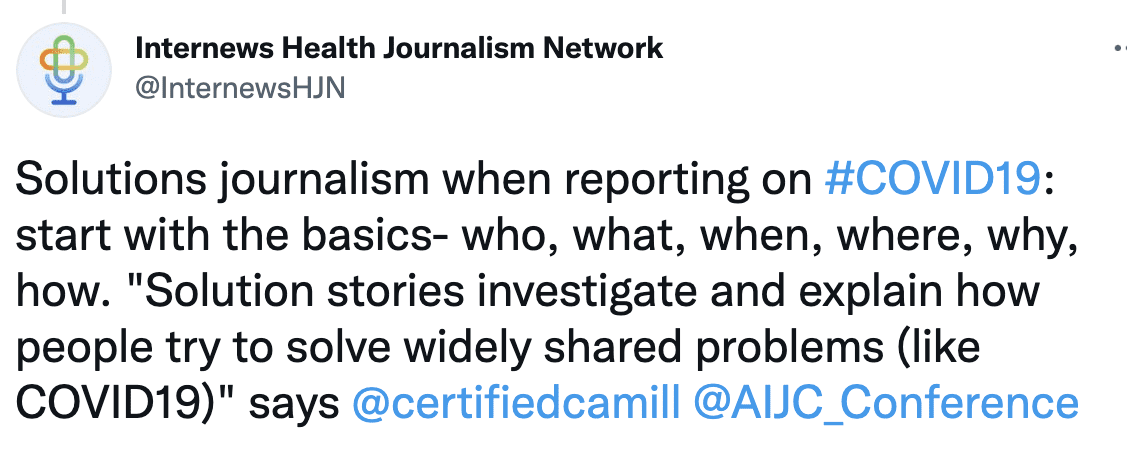Compiled by Kathryn Cleary

On Monday October 11th 2021, Internews Global Health Advisor Ida Jooste, moderated a discussion between Internews Pandemic Media Mentors, Adele Baleta and Michael Sazwedel, Nigerian broadcast journalist (and HJN Vaccine Stories Production grantee) Chidera Aneke and South African investigative journalist Pieter-Louis Myburgh. The discussion titled, “The COVID 19 Story: Science, Scandal, Solutions” formed part of this year’s African Investigative Journalism Conference (https://aijc.africa/).
Making sense of the science
Baleta kicked off the session by sharing some helpful information for journalists reporting on and making sense of science. “Journalists need to disseminate credible information,” she emphasises.
Baleta says that as a result of the COVID-19 pandemic, most journalists have been forced to become health and science journalists, this on top of a pre-existing shortage of specialised reporters in these fields. She encourages journalists to be weary of sources who may come off as, what she calls, “instant experts,” and to be mindful of confirmation bias in their stories.

Taking a step towards solutions
Following Baleta, Aneke highlights the importance of solutions journalism, particularly during the pandemic.

“Even if something didn’t work, reporting it is still solutions journalism,” says Aneke. “Solutions journalism does not sing praises of the people, it reports on what is being done.”
Deep dive investigations
Touching on the investigative side of health reporting, Myburgh shared the ins and outs of Daily Maverick’s Scorpio investigation into the Digital Vibes corruption scandal in South Africa.
Resources for journalists in Africa
Last, but certainly not least, Salzwedel finished off the session by going through some excellent resources for journalists based in Africa, where to find these resources you may ask? Click here: bit.ly/thecovid-19story